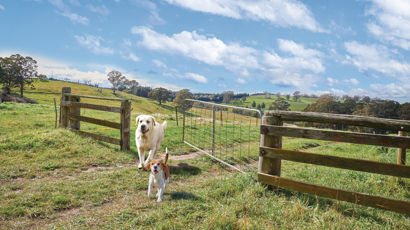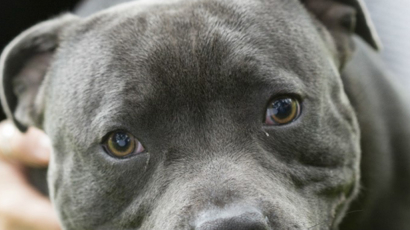Skin & Gut Health Checks: Is My Dog the Sensitive Type?

Being a dog owner is about dealing with the good, the bad and the ugly.
The good far outweighs the other two, but I don’t know many pet parents who haven’t needed to deal with a sensitive pup in one way or another. By this I mean cleaning up sloppy poos or soothing red skin that has been the victim of intense scratching.
Below are some tips and tricks for those wanting to ‘get to the bottom of’ a subject that really gets ‘under our skin’!
DO YOU HAVE A ‘SENSITIVE’ DOG?
There’s often an overlap in sensitivities at the level of the gut and the skin. Some refer to these as allergies, others as hypersensitivities, others still may call them intolerances.
The finer delineations are in the realms of your vet, who needs to be consulted if your dog is showing signs of illness. But if you’ve a long-standing suspicion that things are just ‘not right’ for one reason or another, let’s put some order to these thoughts:
|
Does your dog…. |
|
|
Have naturally ‘pink skin’? |
Have poo of variable consistency? (see Poocheck to confirm) |
|
Have frequent occasions of itchy-scratchiness or itchy-licking throughout the day, regardless of flea treatments? |
Take a long time for their gut to ‘settle’ when changing from one food to another, or if they’ve eaten something that they’ve never tasted before? That also goes for dedicated foods, like chicken treats for dogs or even grain free dog food. |
|
Live a life where there’s a high demand on their skin and coat? (think about frequent grooming sessions, exposure to dry or humid conditions, etc) |
Tend to eat weird and wonderful things (sometimes known as ‘scavenging’)? |
|
Get the odd pimple, sore or graze? |
Wake themselves up with when they fart? |
|
Belong to a breed that is known for its skin issues |
Belong to a breed that is known for its gut issues |
|
If YES to any of the above, your dog may be described as having ‘sensitive skin’. |
If YES to any of the above, your dog may be described as having a ‘sensitive gut’. |
Thinking in the above terms isn’t about sounding alarm bells that your dog is ill UNLESS they’re showing what we call ‘clinical signs’ that some form of disease process is going on. By this we mean longer-lasting indicators of ill health.
Our golden rule is that if you’re concerned about your dog’s overall wellbeing, then veterinary advice from someone who can literally get ‘hands on’ (and do some tests if necessary) is always best.
By asking the questions above, we’re becoming aware of low-level sensitives, and we’re setting in place some markers to monitor for long-term skin and gut health. Vets use verified allergy, inflammatory, itch and faecal condition scores when things go down the medical route, but you can take a pro-active approach to get on top of sensitive skin and guts before trouble sets in.
Healthy Benefits Sensitive Skin & Gut is here to help along the way. It’s without doubt the best Black Hawk option when your dog’s skin, coat and/or digestion is front-of-mind.



